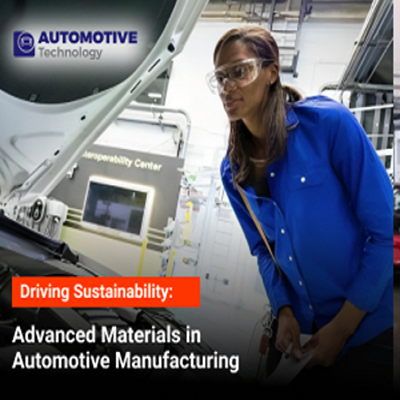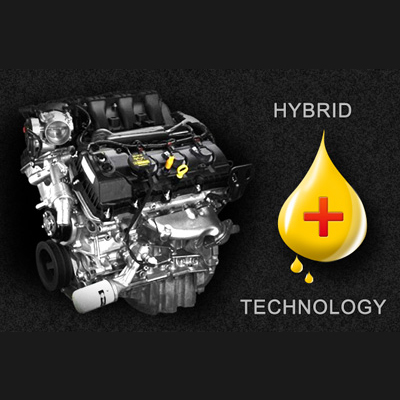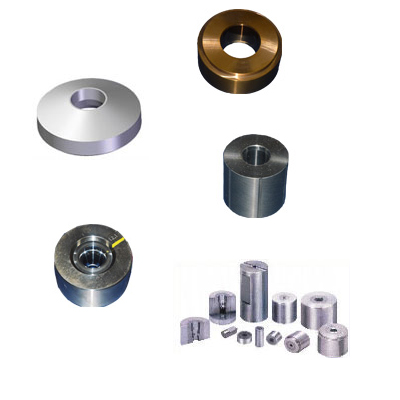Driving Sustainability: Advanced Materials in Automotive Manufacturing

Introduction
The automotive industry, a cornerstone of modern society, is experiencing a dynamic transformation through the integration of advanced materials in vehicle manufacturing. With a heightened focus on lightweighting and sustainability, automakers are turning to innovative materials that not only reduce the overall weight of vehicles but also contribute to a more eco-friendly and energy-efficient future. Let's delve into the world of advanced materials in automotive manufacturing, understanding their pivotal role in shaping the vehicles of tomorrow.
Lightweighting: The Driving Force of Innovation
Under the banner of lightweighting, automotive manufacturers are fervently pursuing strategies to bolster fuel efficiency and curtail carbon emissions. Conventional steel, historically predominant in vehicle construction, is steadily yielding ground to more sophisticated substitutes like aluminum, magnesium, and carbon fiber composites. Renowned for their remarkable strength-to-weight ratios, these materials facilitate the development of resilient yet lighter vehicle frameworks. Consequently, this shift substantially diminishes overall energy consumption, culminating in heightened performance and a reduced environmental footprint.
Aluminum: Paving the Way for Enhanced Efficiency
Among the forefront materials revolutionizing the automotive industry, aluminum stands out as a game-changer. Renowned for its remarkable lightweight properties and exceptional corrosion resistance, aluminum components are increasingly integrated into vehicle designs, particularly in body panels, frames, and engine parts. The use of aluminum enables manufacturers to achieve significant weight reduction without compromising structural integrity, consequently improving fuel economy and overall vehicle performance. Additionally, the recyclability of aluminum contributes to the sustainability aspect of automotive production, aligning with the industry's commitment to eco-conscious practices.
Magnesium: Enabling Agility and Durability
In tandem with aluminum, magnesium is gaining traction as a vital component in automotive lightweighting endeavors. Boasting an impressive strength-to-weight ratio, magnesium offers manufacturers the opportunity to craft components that are not only lighter but also highly durable. By incorporating magnesium alloys in various vehicle parts, such as transmission cases and steering wheels, automakers can achieve superior agility and handling while maintaining stringent safety standards. Furthermore, the inherent recyclability of magnesium underscores its role in fostering sustainable manufacturing processes, aligning with the industry's overarching commitment to environmental responsibility.
Carbon Fiber Composites: Redefining Strength and Versatility
In the pursuit of ultimate lightweighting, carbon fiber composites have emerged as a revolutionary solution, redefining the boundaries of automotive design and engineering. Composed of carbon fibers embedded in a matrix material, these composites offer unparalleled strength and rigidity, surpassing the capabilities of conventional materials. By incorporating carbon fiber composites into vehicle structures, manufacturers can achieve significant weight reduction while ensuring optimal safety and crashworthiness. Moreover, the adaptability of carbon fiber composites enables the creation of intricate and aerodynamic designs, leading to enhanced performance and aesthetic appeal. Despite being relatively expensive, the long-term benefits in terms of fuel efficiency and sustainability make carbon fiber composites a compelling investment for the automotive industry's future.
Sustainability: Redefining Manufacturing Practices
Beyond lightweighting, the integration of advanced materials in automotive manufacturing signifies a significant shift toward sustainable and eco-friendly production processes. Automakers are actively embracing sustainable practices, incorporating recycled materials, and implementing energy-efficient manufacturing techniques to minimize their environmental footprint. By prioritizing the use of recyclable materials and adopting innovative production methodologies, the automotive industry is redefining its role in promoting a greener and more sustainable future.
Recycled Plastics: Promoting Environmental Consciousness
In line with the sustainability drive, the incorporation of recycled plastics in automotive components is gaining prominence as a means to reduce plastic waste and promote environmental consciousness. Through advanced recycling technologies, post-consumer plastics are transformed into high-quality materials, suitable for various vehicle applications, including interior components and exterior panels. By embracing recycled plastics, automakers not only contribute to the reduction of plastic pollution but also minimize the demand for virgin materials, fostering a circular economy within the automotive manufacturing ecosystem.
Bio-Based Materials: Merging Innovation with Environmental Preservation
In a bid to further enhance sustainability, the utilization of bio-based materials in automotive manufacturing is reshaping the industry landscape. Derived from renewable resources, such as plant fibers and natural polymers, bio-based materials offer a viable alternative to conventional petroleum-based materials, significantly reducing the carbon footprint of vehicle production. From bio-based plastics to natural fiber composites, these materials demonstrate commendable strength and durability, providing a sustainable pathway for the development of eco-friendly vehicles. By embracing bio-based materials, automakers are championing a holistic approach to sustainability, aligning their production practices with the preservation of natural resources and the mitigation of environmental impact.
Conclusion
The infusion of advanced materials into automotive manufacturing signals a remarkable transition toward the development of more efficient, lighter, and sustainable vehicles. By embracing the use of lightweight components such as aluminum, magnesium, and carbon fiber composites, car manufacturers are redefining benchmarks for performance, safety, and environmental sustainability. Simultaneously, the industry's emphasis on sustainable production methods and the integration of recycled plastics and bio-based materials underscores a significant shift, underscoring the significance of environmental awareness and the prudent use of resources. As the journey of innovation unfolds, the collaborative endeavors among materials scientists, engineers, and automakers are set to define a future where automotive prowess seamlessly aligns with environmental stewardship.
As the automotive industry continues to navigate the terrain of advanced materials and sustainability, ongoing research and development are driving the emergence of novel solutions and materials. Advancements in nanotechnology have paved the way for the integration of nanomaterials, offering enhanced strength, improved thermal stability, and superior mechanical properties. By harnessing the potential of nanomaterials, manufacturers can further optimize vehicle performance while minimizing energy consumption and environmental impact.
Furthermore, the adoption of smart materials, characterized by their ability to respond to external stimuli, holds significant promise for the automotive sector. Smart materials, including shape memory alloys and polymers, possess the capacity to adapt to changing conditions, thereby contributing to improved safety, comfort, and overall driving experience. By leveraging the transformative capabilities of smart materials, automakers can usher in an era of intelligent vehicles that prioritize both efficiency and user-centric design.
In essence, the integration of advanced materials in automotive manufacturing, coupled with a steadfast commitment to sustainability, signifies a progressive shift toward a future where mobility is synonymous with efficiency, safety, and environmental consciousness. As technological boundaries continue to be pushed and sustainability takes center stage, the automotive industry is poised to redefine its role as a pioneer of innovation and a steward of the planet.



